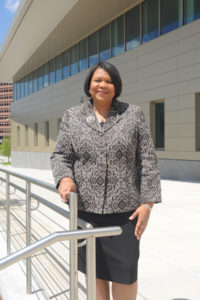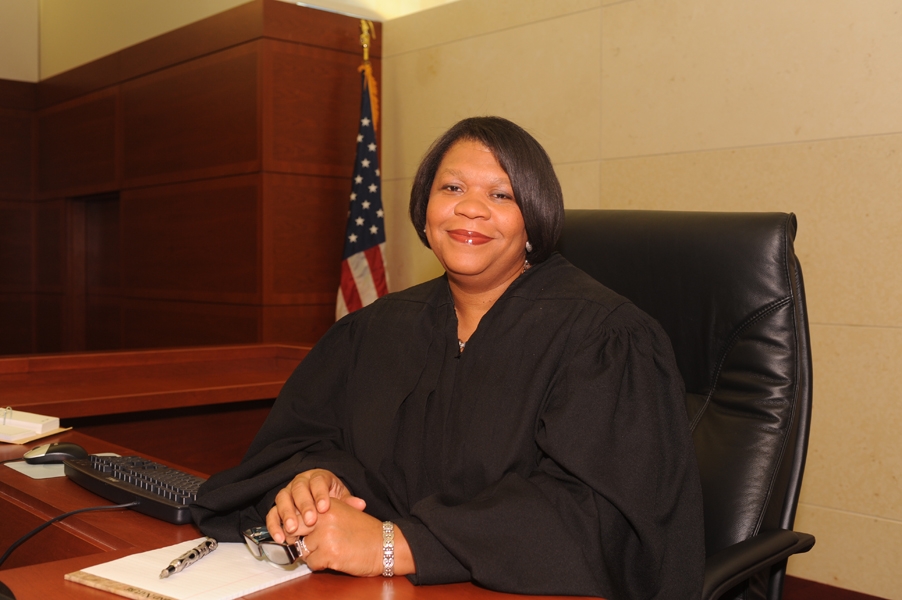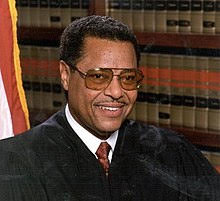A profile on the Honorable Mary S. Scriven, U.S. District Court Judge for the Middle District of Florida
Author: Utibe Ikpe, Meland Budwick
Judge Mary S. Scriven’s mother forecasted her success. On the weekend Judge Scriven graduated from law school in 1987, her mother wrote her a letter, which expressed pride in her daughter’s accomplishments and stated, “a federal judgeship is not out of the question.” In 1997, Judge Scriven fulfilled her mother’s dream when she was appointed to serve as a Magistrate Judge at the United States District Court for the Middle District of Florida, making her the first African American woman to serve as a federal judge in the state of Florida. Judge Scriven served as a Magistrate Judge until September 30, 2008, when she was appointed to serve as a District Court Judge at the United States District Court for the Middle District of Florida. Today, the letter from Judge Scriven’s mother sits on the desk in Judge Scriven’s chambers.
 Judge Scriven’s life and her ascension to the federal bench are filled with stories of perseverance, community strength, and personal confidence. Judge Scriven was born in Georgia to a nurse and pastor during the 1960’s. She integrated two schools, and recalls being the only African American child in her third-grade class, where many of the other children refused to associate with her. Judge Scriven was also the only African American child in her Girl Scout Troop. After Judge Scriven joined the Girl Scout Troop, the girls were banned from meeting at a predominately white church, which had been the Troop’s regular meeting place. Fortunately, the Girl Scout Troop leader was not discouraged by this act of hate, and she did not ask Judge Scriven to leave the group. Instead, the Troop leader moved the group’s regular meetings to her personal home.
Judge Scriven’s life and her ascension to the federal bench are filled with stories of perseverance, community strength, and personal confidence. Judge Scriven was born in Georgia to a nurse and pastor during the 1960’s. She integrated two schools, and recalls being the only African American child in her third-grade class, where many of the other children refused to associate with her. Judge Scriven was also the only African American child in her Girl Scout Troop. After Judge Scriven joined the Girl Scout Troop, the girls were banned from meeting at a predominately white church, which had been the Troop’s regular meeting place. Fortunately, the Girl Scout Troop leader was not discouraged by this act of hate, and she did not ask Judge Scriven to leave the group. Instead, the Troop leader moved the group’s regular meetings to her personal home.
Judge Scriven’s college admission process includes a potentially discouraging experience that is similar to a story told by former First Lady, Michelle Obama. Like Michelle Obama, Judge Scriven was told by a high school guidance counselor that she was not good enough to be accepted into the college of her choice. When Judge Scriven informed her high school guidance counselor that she was interested in attending Duke University, she was told that she would never get into Duke. The guidance counselor also said that if Judge Scriven were somehow accepted into Duke, it would only be because she is black, and she would never succeed at the university. Judge Scriven persevered, pulling on the internal confidence instilled by her parents and the support of her high school principal who wrote a glowing recommendation letter.
Judge Scriven graduated from Duke University in 1983 and obtained her law degree from Florida State University, with honors, in 1987. Judge Scriven applied to many law firms, with some telling her that they were not ready to hire an African American woman. Ultimately, she started her law career at Carlton Fields’ Tampa office where she was warmly welcomed and had many mentors who took interest in cultivating her legal skills. Judge Scriven greatly enjoys the intellectual challenge of analyzing and interpreting the law, which is no surprise because she was an Associate Professor at Stetson University College of Law from 1996-1997, teaching courses in contracts, commercial law, remedies, and legal malpractice.
Judge Scriven was inspired by many people in her career including Judge Joseph W. Hatchett (retired), an African American man who formerly served as a Circuit Court Judge at the United States Court of Appeals for the Eleventh Circuit. Judge Scriven explained that seeing Judge Hatchett gave her the audacity to dream and believe that she could ascend to a similar position. She strives to provide the same inspiration to others.
Judge Scriven likes to tell a story about her family’s scrabble game. During a game, her brother had a seven-letter word, which would ensure his win if an opportunity arose for him to play the full word. He held onto the word for the totality of the game, never playing its pieces or breaking it up into smaller words. In the end, he lost because there was never an opportunity to play the full seven-letter word. Judge Scriven explains that the moral of the story is that we must be flexible and adjust to the circumstances of life. If we are rigid in our approach and unwilling to find alternate solutions, we will be stuck holding potentially winning pieces, but losing because we never entered the game.
Judge Scriven is flexible and persistent in her life, having applied to be a District Judge three times before finally being appointed in 2008, and finding ways to overcome discouraging and oppressive circumstances. Judge Scriven noted that the legal field is more diverse than when she entered the practice of law, but we have not attained true diversity. In most instances, legal departments only have a handful of attorneys who represent the rich diversity of our communities, if even that, and there are even fewer such attorneys in positions of power. To African American lawyers who often find themselves in these potentially lonely situations, Judge Scriven’s advice is to work hard, always be prepared, seek internal and external support, and as we learned from the game of scrabble—always stay in the game.


